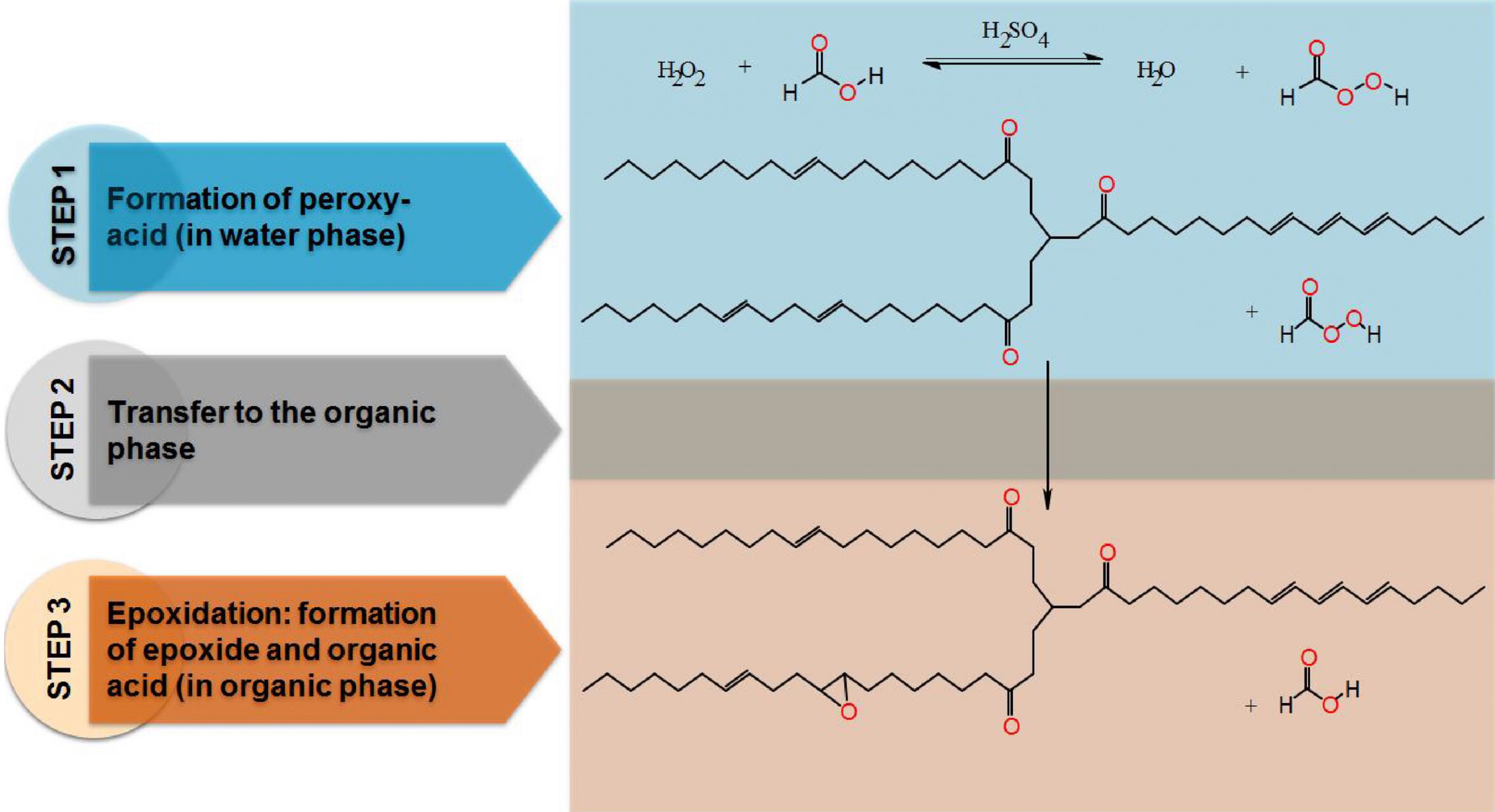Thermal risk in semi-batch reactors: The epoxidation of soybean oil
Valeria Casson Moreno, Vincenzo Russo, Riccardo Tesser, Martino Di Serio, Ernesto Salzano, Process Safety and Environmental Protection, Volume 109, 2017, Pages 529-537
Abstract
The interest in the epoxidation of vegetable oils is constantly growing in the chemical industry. The most common process is based on the oxidation of the unsaturated bonds by peroxyacids generated in situ, in the water phase, using concentrated hydrogen peroxide and the corresponding organic acid in presence of a mineral acid as catalyst. The overall epoxidation reaction is highly exothermic, hence operating conditions should be always addressed by safety considerations related to the possibility of runaway reactions.
In this paper, best operating conditions and safety considerations have been defined for a complex reaction network for the epoxidation of soybean oil, which includes the decomposition reactions of the performic acid generated during the epoxidation. Furthermore, sensitivity-based reactor stability criteria have been applied and compared, for the design of an adequate Early Warning Detection System for the process.

